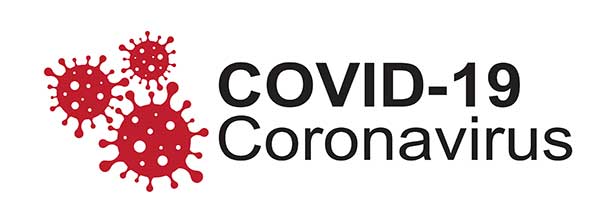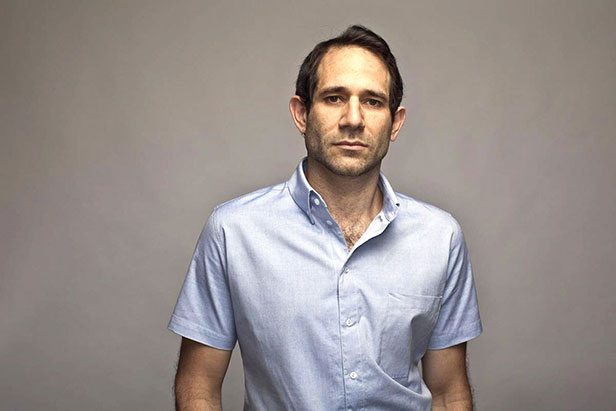News July 13, 2020
Four Die in COVID Outbreak at Promo Supplier
Health officials have ordered Los Angeles Apparel (asi/67971) to remain closed. The company says it has taken extensive steps to protect workers.
Public health officials say that four Los Angeles Apparel (asi/67971) employees have died as a result of COVID-19 and approximately 300 have been infected with the virus, prompting the officials to order the promotional products supplier’s facilities in Los Angeles to remain closed.

Los Angeles Apparel was initially ordered closed on June 27 after the Los Angeles County Department of Public Health (DPH) found what it described in a statement as “flagrant violations of mandatory public health infection control orders and after the company failed to cooperate with DPH’s investigation of a reported COVID-19 outbreak.”
Initially, reports indicated that 151 Los Angeles Apparel workers, who labor in three manufacturing facilities in Los Angeles, had been infected with COVID-19. According to DPH, it’s now been determined that more than 300 workers have caught the virus, with four having passed away.
“The death of four dedicated garment workers is heartbreaking and tragic,” said Dr. Barbara Ferrer, the director of the Los Angeles County Department of Public Health. “Business owners and operators have a corporate, moral and social responsibility to their employees and their families to provide a safe work environment that adheres to all of the health officer directives — this responsibility is important, now more than ever, as we continue to fight this deadly virus.”
Three of the workers died in June. One death occurred in early July.

Dov Charney, founder, Los Angeles Apparel
According to DPH, a healthcare provider on June 19 notified the agency of a potential coronavirus outbreak at Los Angeles Apparel. DPH says that Los Angeles Apparel failed to provide a list of all company employees to compare it to testing results it had received, though the company later (July 4) provided what DPH described as an incomplete list.
A complete list of company employees “is a crucial tool to determine the extent of a potential outbreak as it allows DPH to track employees against DPH’s list of confirmed positive or negative COVID-19 individuals received from testing labs,” DPH said in a statement.
DPH inspectors conducted a site visit on June 26 and found what they allege were multiple violations. These included infractions of social distancing requirements and infection control protocols, such as the use of cardboard barriers to separate workers, DPH said. Analyzing the alleged incomplete list of Los Angeles Apparel employees and results of COVID-19 tests from reporting laboratories, DPH says that it determined, as of July 10, that more than 300 Los Angeles Apparel workers had become sick with the virus.
In violation of the shutdown order issued June 27, Los Angeles Apparel reopened with what DPH described as new employees, health authorities said. DPH learned about the new employees “despite Los Angeles Apparel’s attempts to prevent DPH employees entering the factory.”
On July 9, health officials issued a directive ordering Los Angeles Apparel to cease operations and detailed the exact actions necessary before the order can be lifted.
In an interview with CNN, Los Angeles Apparel founder Dov Charney contested DPH’s allegations against his company, telling the news outlet that health officials were acting in “bad faith” and in search of “scapegoats.”
Los Angeles Apparel released a public statement over the weekend of July 11-12 about the outbreak, which was posted to Instagram:
As part of the statement, the company asserted that it has taken extensive steps to protect employees, including requirements to wear masks, temperature checks of workers and visitors before they’re allowed to enter a facility, the setting up of hand sanitizer and disinfectant stations, and the use of facial recognition time clocks that help reduce the amount of surfaces an employee needs to touch in a day, among other measures. The company said it has been rigorously testing employees for five weeks so they can quarantine if the tests came back positive.
Los Angeles Apparel disputed that it withheld information from health authorities. Rather, the company’s statement said that requested information was handed over as quickly as possible. In instances, providing the information was delayed because the company needed to obtain private information from employees and so needed consent, according to the statement.
“Prior to being contacted by the health department, we proactively approached their offices to alert them about the rates of infection among our employees,” the statement said in part. Speaking to CNN, Charney also disputed that the company had tried to stop health officials from entering for inspections. He said inspectors were only asked to wait until the firm’s legal counsel could arrive on site.
Los Angeles Apparel maintains that it reopened with permission from health authorities – permission the company said was only later withdrawn. The company said it will remain closed as ordered and work with health officials, support mandates that better protect public health, and make necessary investments to keep workers safe.
“The illness and loss of life amongst our team and community is absolutely heartbreaking,” Los Angles Apparel wrote in its statement.
Charney is best known as the founder of American Apparel (asi/35297), a brand that’s now owned by Top 40 supplier Gildan (asi/56842) and with which Charney has no affiliation. Los Angeles Apparel, which Charney started in 2016, specializes in making fashion-forward basics. As the coronavirus crisis escalated into a full-scale pandemic, Los Angeles Apparel pivoted to producing cloth face coverings/masks at its L.A. facilities.
As of now, there’s been no indication from authorities that products Los Angeles Apparel has produced could have transmitted COVID-19 to buyers/end-users.
While not speaking about Los Angeles Apparel specifically, the Centers for Disease Control and Prevention has said of transmission through physical products, in general: “There is still a lot that is unknown about COVID-19 and how it spreads. Coronaviruses are thought to be spread most often by respiratory droplets. Although the virus can survive for a short period on some surfaces, it is unlikely to be spread from domestic or international mail, products or packaging. However, it may be possible that people can get COVID-19 by touching a surface or object that has the virus on it and then touching their own mouth, nose, or possibly their eyes, but this is not thought to be the main way the virus spreads.”
